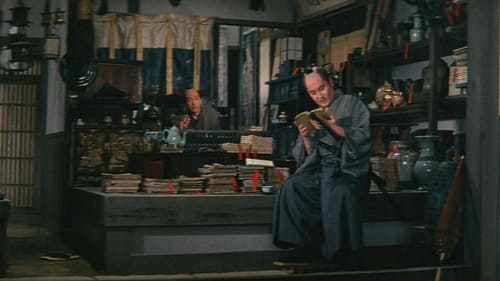
Three stories revolve around independence, a man searching for his wife, and a poor craftsman trying to make money.
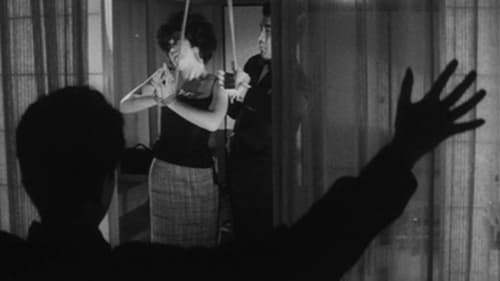
Department store guard
While under sedation in a dentist's office, a young art student has sex fantasies about naked women, vampires and a beautiful patient he saw in the office.
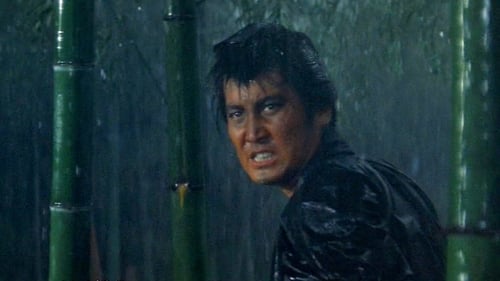
A young yakuza, Yatappe, wanders around the country in search of his long-lost little sister, Oito. While traveling, he rescues a young girl, Osayo, whose father entrusts her to him with his dying wish. To honor his promise to Osayo's deceased father, Yatappe brings her to safety, and from a distance keeps a watchful eye on her well being.

A Tokyo family escaping the war relocates to a Hokkaido village; their daughter is set to marry the local leader's son, but her siblings disapprove.
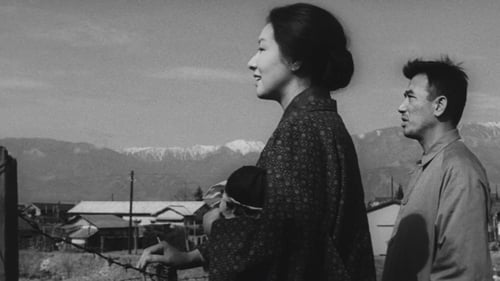
A demobilized soldier becomes a day laborer with a road construction gang, and his wife goes to work to bolster their income. Their modest dream is to see their son grow and to be happy as a family.
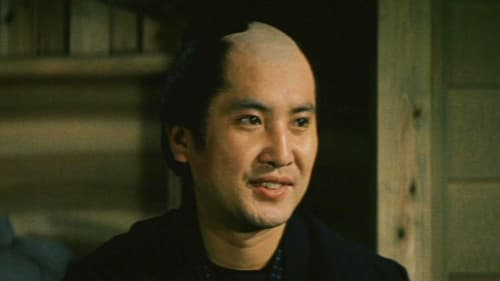
A carpenter, Shigetsugu, learns a lesson of love and humanity from five orphaned children and an affectionate woman named Oritsu. It's a winning combination of drama and humor. The warm friendship that grows between the carpenter, the woman and the children making this into a true masterpiece.

A geisha helps a runaway who looks just like her.

Matabei
A story of an orphan boy who wanted the love of parents so badly, another orphan sincerely pitied him to the point he gives his secret birthright as an illegitimate son to a Shogun as a "gift of hope" to the sad boy. As the orphan boy grew up, his loving heart became bitter and he saw the opportunity to take advantage of this birthright with the help of a man who wanted to use this orphan's desire to be loved, for seizing power in the shogunate by using the imposter. Many obstacles to hurdle along the way of deception, however, will they succeed or will he be exposed?

Japanese mystery film marking Yuka Mizuhara's film debut.

Japanese comedy film.

Popular geisha Koharu suspects that Yusaku, a handsome stranger she falls in love with, is involved in a robbery of precious diamond.

Alongside Tokyo's Sumida River is a ragpickers' settlement known as Ant Village. One night, a young Catholic girl, Satoko Kitahara, who has been baptized under the name of Maria, comes to offer her services. However, Ant Village is not just an ordinary vagrants' community but a fine autonomous organization, and as the municipal authorities have long been demanding that the people of Ant Village leave the site, Satoko is utilized to publicize the Village and win public sympathy. While being utilized in this manner, Satoko is nevertheless glad to be able to help the people of Ant Village, especially the children, and when the summer vacation comes she decides to take the children on an excursion to Hakone. To raise funds for this purpose she becomes a rag-picker herself.
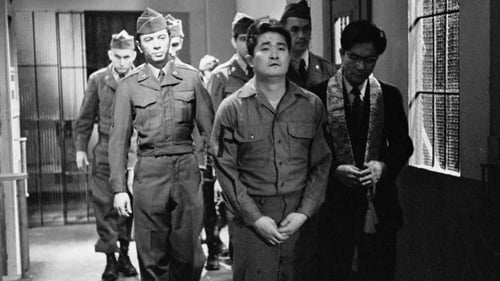
Television production of I Want to Be a Shellfish. On a post-war peaceful day in Japan, Toyomatsu Shimizu, a barber as well as a good father and husband, is suddenly arrested by the Prefectural Police as a war criminal and sued for murder. According to the accusation by GHQ, Toyomatsu "attemped to kill a US prisoner", which was nothing but an order by his superior and failed after all with hurting the prisoner by weak Toyomatsu. Also, Toyomatsu was driven to corner at the trial by the fact that he fed the US prisoner some burdock roots to nourish him. Toyomatsu believes nothing but being not guilty, but he is sentenced to death by hanging. Prior to the execution, Toyomatsu writes a long farewell letter to his family, the wife and the only son: "If I ever incarnate, I hate to be a human being any more.... Oh yes, I would like to be...a shellfish living on the rock-bottom of the sea."

Live-action adaptation of Yoshiro Kato’s manga.

Eitaro Yoshii
Aiko, a bar hostess, falls for the son of a company president who also keeps a mistress, and whose family disapproves of his relationship with the bar hostess.
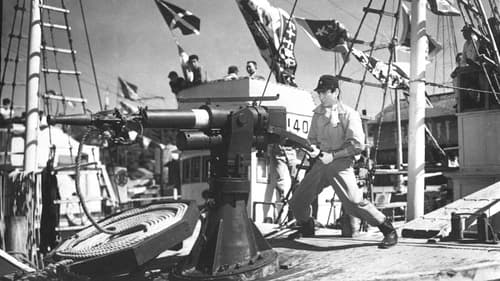
A film about the rivalry between Captain Gondo and the harpooner Yosuke Yamagami, working on the best whaling ship Hayabusa Maru. One day they will have to face a giant, monstrous whale.
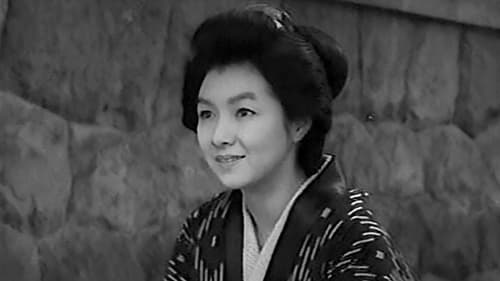
Kisuke, the foster father
A woman marries, gives birth to a stillborn child, and divorces, falls in love with a hotel-keeper, only to find herself subordinated to his drive for success, takes up with a tailor who cannot console himself with her strong personality.

Poor social conditions badly affect the relationship between a married couple, when the husband, who is desperately searching for work, fails to notice the terrible sacrifices made by his wife when she accepts a job at a local inn.

Rikitaro and Osayo are popular entertainers who throw knives. They are sweethearts. At one day They help Ocho, who is a beautiful pickpocket when she is attacked by Ronin. in Asakusa, However, they come to be surrounded by doubtful Ronin after that. Moreover, Rikitaro is called to stop by Kajima of Edo-Karo of Nihonmatsu-Han. He calls him a young lord and treats Rikitaro as one, because his young lord, Tetsunojo is missing. Kuni-Garo makes a plan to carry out. Kikumaru, the younger brother of the mother difference in him instead of Tetsunojo, Since Rikitaro is just like Tetsunojo, then, they are convinced that it is Tetsunojo of Rikitaro. Rikitaro and Osayo decide to help Kajima and Tetsunojo. Finally they success to crush Kikumarsu's group.

Fuyuko's father
A young widow, made world weary by her abusive, neglectful husband, finds herself in a minor scandal when she's seen with her intense, no-nonsense childhood sweetheart.

A boy falls in love with a girl. Neither of them know that she's to be sold to a brothel.

Three young women make a suicide pact, but they grow to have a better understanding of themselves.

A young woman becomes president of a business.

Follows six male friends from elementary school whose career paths diverge—newspaper reporter, engineer, boxer, sushi restaurant owner—but whose romantic lives intersect. (MoMA)

Tokuji Kawamura
Gosho’s most celebrated film both in Japan and the West, Where Chimneys Are Seen is perhaps the most compelling example of his concern for, and insights into, the everyday lives of lower-middle-class people. Based on Rinzo Shiina’s novel of the absurd, the film depicts the lives of two couples against the backdrop of Tokyo’s growing industrialization during the 1950s.

Born to a prestigious family, Natsuko is not impressed by any one of her suitors. Determined to spend her life serving god, she sets off to a convent in Hakodate, Hokkaido, and meets along the way a young bear-hunter with whom she begins an adventure.

Landlord's cousin
Carmen falls in love with an artist in this sequel to Carmen Comes Home. The film is noted for being entirely shot with canted (Dutch) camera angles.

Nami (波 Nami) is a Japanese film directed by Noboru Nakamura. It was entered into the 1952 Cannes Film Festival.

Tahei
It chronicles the experiences of a neighbourhood doctor, whose taste for tonkatsu (a popular Japanese dish, similar to a pork schnitzel) earns him the nickname ‘the pork cutlet prince’ (‘Tonkatsu Taisho’, the film’s Japanese title) from the affectionate residents of the tenement in which he lives. When a local hospital, run by a female doctor, plans to expand, the future of the tenement is called into question.

Inochi uruwashi
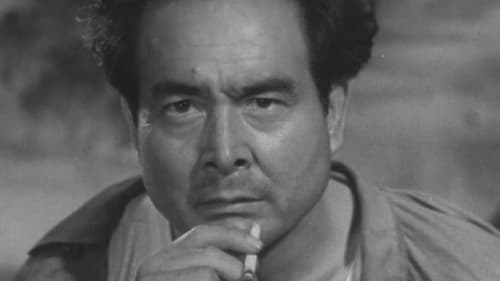
Jinkichi Aikawa
A fishing union depends on two brothers to make up the losses caused by the dishonest captains they replaced.
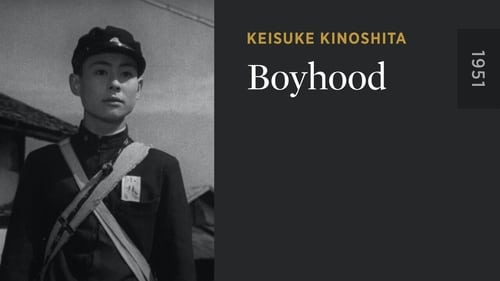
Furukawa
When a family has to relocate due to the war, they are ostracized by their new community.
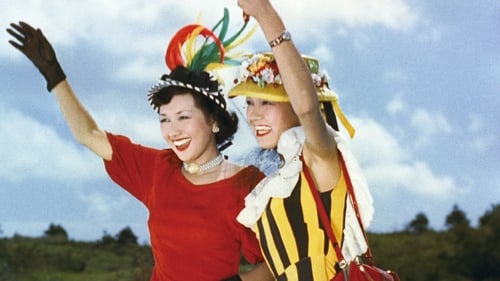
Shoichi Aoyama
Una chica que había dejado su ciudad natal por la emocionante aventura de la gran ciudad regresa a casa años más tarde para una visita, lo que pronto de alguna manera causará escándalo.

Mr. Sato
A matchmaker looks to unite a young woman from a wealthy Tokyo family with the humble owner of an auto garage.

Hikozo Sakai
Tokiko is a mother patiently waiting for her husband's return from the war when her 4-year old son becomes ill. She takes him to the doctor for treatment but has no way of paying. She resorts to prostitution. One month later her husband returns from WWII to find his desperate wife, who tells him the truth. Together they must deal with the consequences.
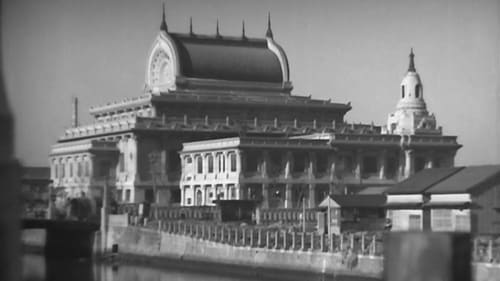
Kawayoshi
En el Japón de la postguerra, un hombre encuentra en la calle a un niño perdido y lo lleva a su casa, pero nadie quiere acogerlo, ni siquiera por una noche. Finalmente, lo hace una viuda de agrio carácter. Al día siguiente, la mujer lleva al niño a su barrio y averigua que el padre se ha marchado a Tokyo y lo ha abandonando. (FILMAFFINITY)

Morita

Kiyoshi, un joven oficial de clase acomodada, es enviado a la Península de Izu, cerca de Tokio. No hay lugar dónde vivir y el templo local permanece lleno de gente que ha debido alejarse de sus hogares como consecuencia de la guerra. Unos lugareños le indican a Kiyoshi que el dueño de un restaurante cercano y padre de dos hijas solteras tiene una habitación libre en su casa. Las relaciones entre los miembros de la familia no volverán a ser las mismas luego de la llegada del nuevo inquilino.
Estrenada el 30 de agosto de 1945, apenas dos semanas después de la rendición nipona, Las jóvenes de Izu fue el primer estreno cinematográfico japonés luego del fin de la Segunda Guerra. Gosho había realizado apenas cuatro películas durante esos años y ninguna de ellas puede ser considerada artículo de propaganda.

Kotobuki-za is a story of the Naniwa-bushi singer Baichuken Tsurumaru.

Nobue's father
Hisshoka is a 1945 Drama film directed by four Japanese directors.
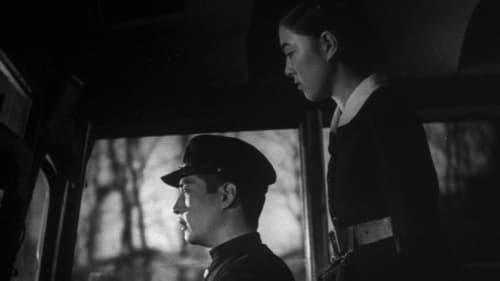
A wealthy family will not allow the military to grow crops on their fields due to their superstitious beliefs about their son's illness.

The story of a boy who befriends a lonely middle-aged man.
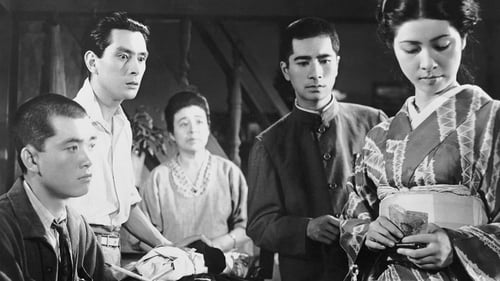
The sweet but naive denizens of a charming port town are hoodwinked by a couple of con men at the outset of World War II. But the hustlers’ plan backfires when they come down with severe cases of conscience. Keisuke Kinoshita’s directorial debut is a breezy, warmhearted, and often very funny crowd-pleaser that’s a testament to the filmmaker’s faith in people.

A nurse's tale of self-sacrifice during wartime. The title is borrowed from a patriotic song made popular by singer Hamako Watanabe during the Second Sino-Japanese War.

Pretty Oshige is deceived by her first love. After this, she lives a hard lifestyle, working at a number of jobs. Her only pleasure is her nephew, who eventually becomes a merchant marine. When Oshige meets her old love ten years later, she is able to forgive him and even thank him for the path her life has taken.

Inoue was something of a rarity in the sense, that he was a Shochiku house director who seems to have worked mostly in period films, often with big stars like Hasegawa or Bando. "Sumidagawa", named after the river that runs through Tokyo, is also a period film, but thematically a modern one. All the themes that you associate with the normal Shochiku women's films set in the present day are in this film, just in a different context: love, the planning of a marriage, career, family relations and societal melancholy. There is no action or swordplay.

This was 1942, so it was a national policy film, no matter what you call it. But when the war was still on the winning side, there wasn't even a little bit of sadness in the film (as the war was getting worse and worse, the burdens on our backs were increasing day by day, and we had to keep forming a line for tomorrow with nowhere to go (Akira Kurosawa's "The Most Beautiful", Admiral Nomura's "Enemy Air Raid", etc.) (Song of Annihilation, directed by Sasaki Yasushi). The film closes with the hope of the blue cloud that is bubbling up in the air. Or it may be the last time that a Japanese film talks about war and looks at the end of the war with an unconcerned eye.

An older sister and brother (Mieko Takamine and Masayoshi Otsuka) come to visit their grandfather (Takeshi Sakamoto) who lives deep in the mountains. As for their parents, father was serving in the South Seas and mother died of illness on her way home. So, the brother, who is still young, will live alone with his grandfather whilst the sister goes away to study to become a teacher.

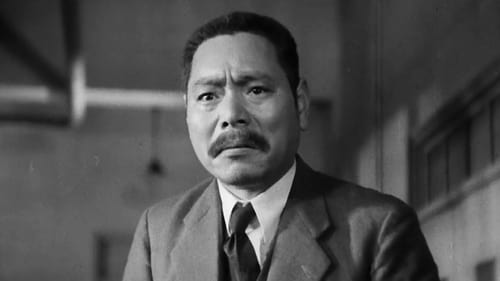
Makoto Hirata
En una ciudad provinciana, un profesor viudo lleva una vida modesta en compañía de su único hijo. Cuando en un viaje escolar, un alumno se ahoga en un lago, él asume la responsabilidad del accidente y dimite. Decide entonces abandonar la ciudad y trasladarse a su pueblo natal. Durante el viaje, padre e hijo discuten sobre el futuro y entre ellos se establece una relación al mismo tiempo cercana y distante. Un día el padre le anuncia que tiene la intención de mandarlo a estudiar a un internado. Años más tarde, el padre trabaja en Tokio y el hijo es maestro. En un encuentro el hijo le anuncia al padre que se va a la guerra.

Emi Ota and her friend Okiku stay briefly at a mountain inn and then return to Tokyo. Later, Nanmura, a soldier on leave, steps on an ornamental hairpin in the public bath at the inn. Emi writes to the inn saying she has lost a hairpin and, when she discovers that it injured Nanmura, returns to apologize. The longer term visitors at the inn meet together to discuss the hairpin incident. These include a grumpy Professor, a young couple Mr and Mrs Hiroyasu, and an old man staying with his two grandsons. They hope to see a romance blossom between Nanmura and Emi, after Nanmura declares that there is something almost poetic in finding a hairpin in the bath.
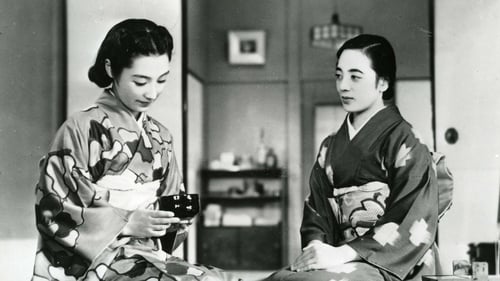
Después de la muerte del patriarca, los Toda, una familia de clase alta, está posando para una foto. Al mismo tiempo que todos lamentan la muerte del padre, se enteran de que éste les ha dejado una deuda considerable.

A reformatory in the remote countryside houses 200 delinquents and problem children. The teachers and caretakers face much trouble. The school is often short on water, and one day, the well runs dry.

director of the arishima's hospital
Movie about a devoted and single woman and her daughter. The mother's nickname is "Bokuseki" (wooden head) because of his supposed stubbornness. No.10 in the list of "The 10 best films of 1940" by Kinema Junpo.

Movie about a devoted and single woman and her daughter. The mother's nickname is "Bokuseki" (wooden head) because of his supposed stubbornness. No.10 in the list of "The 10 best films of 1940" by Kinema Junpo.

Adaptation of Kishida Kunio's novel. Set against the backdrop of a power struggle within a hospital, depicts the love lives of the director's daughter, the administrative director, a doctor, and a nurse.

Rakugo-ka
Melodrama about a talented singer who finally makes her debut
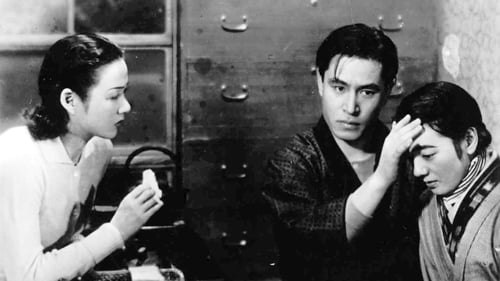
Shinzō Arita
A man who works late hours at a deadening job lives together with his wife and his younger sister. The younger sister's a modern girl who's starting to receive romantic attention from one of her co-workers.

Grandfather
A follow-up to Children in the Wind, Four Seasons of Children(a.k.a. Kodomo no Shiki) is also based on a Tsubota Joji novel. The film is divided into two chapters, following the young protagonists' minor adventures and real-world awakenings over spring and summer, then autumn and winter.

Policeman
Two childhood friends go their own ways but meet again some years later after they have both married. They get re-acquainted, meet each others’ families, and all is well. Then the disagreements start...

A young doctor, Kozo Tsumura, falls for young nurse Katsue Takaishi. But she's got a secret: she's a widow with a son. Kozo and Katsue decide to run away to Kyoto, but her child suddenly became sick and she just missed the train and Kozo. She makes it to Kyoto finally, but is unable to meet him. Plus she isn't accepted into Kyoto society. She goes back to her hometown and tries to forget him. She quits the hospital to concentrate on her singing. She makes her professional debut with the hit "Aizen Katsura". Kozo is in the audience.
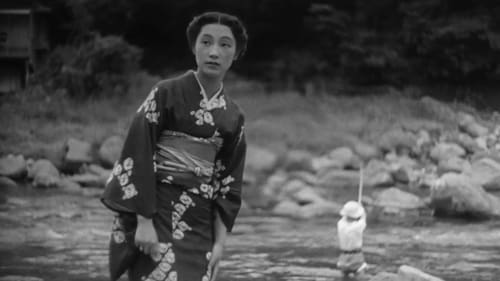
Dos invidentes se ganan la vida trabajando como masajistas en varios balnearios. En uno de ellos coinciden con una misteriosa mujer de Tokio, de la que muchos sospechan que es la culpable de los robos que se están produciendo en las posadas de ese balneario. Uno de los dos masajistas se enamora de la mujer...

Approaching their graduation ceremony, Saegusa, Sanae, and their classmates go on an overnight trip to Hakone with their teacher Ms. Kawahara, who will soon leave school. They thank her doing so and go on their respective paths, ending soon their student life.

Shigeo's uncle
Shigeo is an aspiring writer living with his girl friend Minako and hoping for success and a better tomorrow every day. Both live on what Minako earns from working in a café. Shigeo is not happy with the situation and neither is his family who do not approve of Minako. Especially his uncle tries to convince him to leave Minako, even using his influence behind the scenes. Things start to change when Shigeo's sister pays the young couple a visit, being the first member of Shigeo's family to actually get to know Minako in person.

Uncle
On vacation's eve, a boy is sent to the countryside to live with his uncle after his father is imprisoned and accused of embezzlement.

A 1937 Japanese film.

Mr. Kawada
A Japanese screwball comedy about the battle between the sexes: two timid men, egged on by their wives, end up in a bitter duel over an expensive lace handkerchief.

Tessai Yamaoka
Kinuyo is a daughter of doctor of Chinese medicine, and Yasuo is a son of surgeon. Their families always fight like cat and dog. This relationship is ancestral. Although Kinuyo and Yasuo love each other, they have different thoughts toward treatments.

Sugiyama
El profesor Komiya está casado con Tokiko, una mujer muy estricta y dominante. El matrimonio tiene que hacerse cargo de la custodia de su sobrina Setsuko que, aunque menor de edad, ya es una mujer liberada, que fuma y sale de noche. Un sábado Komiya va a un bar, donde encuentra accidentalmente a Setsuko. Cuando Tokiko ve que la chica llega a casa con uno de los estudiantes de su marido y, además, se entera de que éste no ha dormido en casa, empieza a alimentar toda clase de sospechas.

The narrative is about a woman who faces hard times, when her husband is arrested for a crime committed by his boss. The woman also has a child to look after, and they end up meeting several colorful personalities.

A musical film made for the inauguration of Shochiku's Ofuna Studio, with an all-star cast of the era.

Fumikichi
Otoku asks her brother Bunkichi to speak with her son Seiichi, a young man for whom sacrificed everything but who now seems to be headed for a wastrel life. Bunkichi admonishes the boy to study harder, but it seems his uncle's advice may already be too late.

Hanaju
A melodrama about a businessman's relations with the three women in his life.
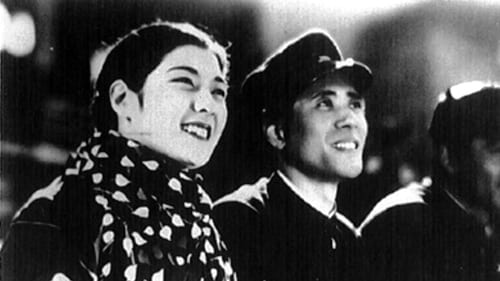
Teacher
In a Tokyo boarding house a group of students and recent graduates struggle to complete their studies and find jobs. Considered a lost film.
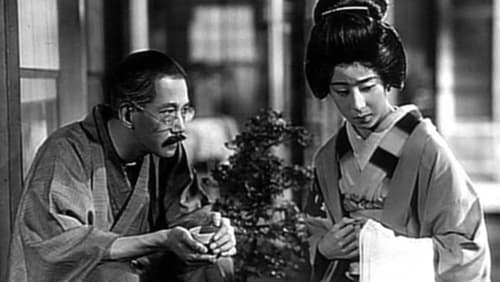
Family drama. A middle-aged father has just married off his third daughter, but still has his nine year old son to raise whom he resents as he was unwanted. (British Film Institute)

Kihachi
Kihachi, an unemployed worker, wanders around the industrial flatlands of Tokyo's Koto district with his two young sons, Zenko and Masako. He is unable to find a job and has to rely on his sons catching stray dogs to earn reward money for their meals. As days go by, Kihachi and the boys no longer have enough money to stay at an inn for the night. Luckily for him, he encounters an old friend, Otsune, who finds him a job and allows them to stay at her eatery house.

Tokochbi's Father
A Japanese film

Domestic comedy involving a strong wife and a "henpecked" husband taking place in a family-run judo school.

Seikichi
A period piece about the love of a wealthy blind woman, a teacher of koto and shamisen, and her devoted manservant. Based on a novella by Tanizaki Junichiro.
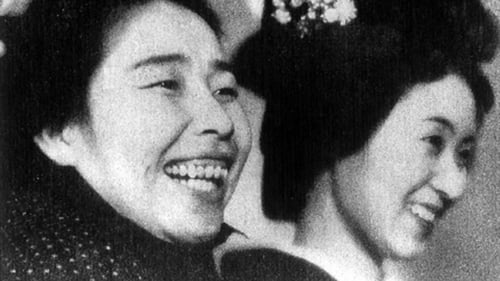
Kihachi
In a back alley of the Shitamachi district of Tokyo, Kihachi bears witness to a series of romantic complications involving the inhabitants of the neighborhood. Considered to be a lost film.

Нагамацу, водитель
Jyuta, an honest owner of a taxi company, has a younger half-brother who is involved in the yakuza world and doesn’t get along well with his mother. Jyuta tries to correct him…
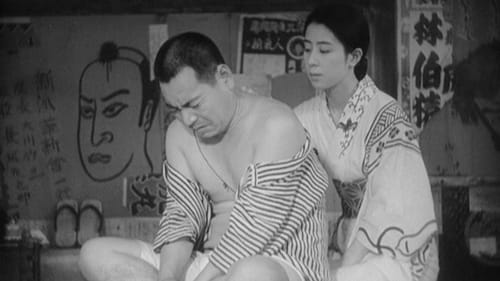
Kihachi
Un anciano y veterano actor que dirige un grupo de teatro Kabuki regresa a un pueblo remoto, donde vive su antigua novia y el hijo de ambos, que ya tiene 19 años. El chico, que desconoce su verdadera identidad, le llama "tío". En 1959, Ozu hizo un remake de este film: "Las hierbas flotantes". (FILMAFFINITY)

That Night's Woman
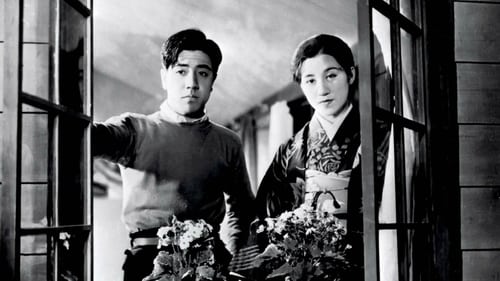
Guest for portrait painter
El último film mudo de Naruse cuenta la vida de una camarera, Sugiko, cuya vida toma un brusco giro tras ser atropellada por un rico hombre de negocios.

Heinosuke Gosho evokes in this film the family conflicts engendered by the eternal problem of a father who projects his professional desires on the life of his son. The sister Machiko is the essential link that will allow everyone to apologize to each other and achieve reconciliation

Fujii's uncle Muraki
The story deals with Fuji, nicknamed Waka-danna (Young Master), the star athlete on his university's rugby team. The son of a wealthy soy sauce manufacturer, Fuji basks in the glory of his athletic celebrity. Attracting the attention of admiring young women, Fuji resists family pressure to settle down and marry after college. Instead, he spends much of his time drinking and womanizing, behavior which eventually leads the college officials to expel him from the team.

Yokoshima
A silent 3-reel comedy short that uses the 1933 film King Kong as a backdrop to the story. It was produced by Shochiku Studios (who released the original 1933 film in Japan on behalf of RKO). It is now considered to be a lost film.

Kihachi
Two Tokyo co-workers come across a destitute young lady in search of a place to live.
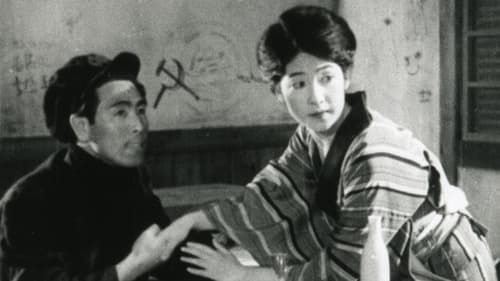
La joven Omitsu se ha quedado sola con su hijo Ayabou tras verse abandonada por su esposo, Mizuhara. Cumplido su turno de camarera, regresa a casa para descubrir que su marido ha regresado. Mizuhara promete hacer borrón y cuenta nueva, así como encontrar un empleo que permita a Omitsu dejar de trabajar.

A young couple is harrased by an uncle.

Hattori
"The Dancing Girl of Izu" tells of the story between a young male student who is touring the Izu Peninsula and a family of traveling dancers he meets there, including their youngest girl. The student finds the naïve girl attractive even though he eventually has to part with the family after spending memorable time together.

Thief
This pair of gentle yet witty and inventive comedies from the director of The Neighbour's Wife and Mine typify both the formal experimentation of early Japanese sound cinema and the social milieux that Shochiku tended to depict. 'Virtually plotless, and feeling more like comic sketches than fully developed stories,' writes Arthur Nolletti, Jr, 'these light comedies, or farces, take a wholly trivial matter (often a socially embarrassing situation) and use it as a springboard for a succession of gags.' Much of the films' distinction comes from the wit of Gosho's direction, the imaginative use of the new sound technology and the charm of the acting, particularly of the heroines (Kinuyo Tanaka in Bride; Hiroko Kawasaki in Groom). Yet in both films, Gosho finds room for some shrewd observation of character and environment, subtly exploring the values and assumptions of the suburban petit bourgeoisie.

College janitor
When a young man inherits his father's lucrative business, he cheats the system to set up three of his college friends with jobs.

Juuyaku
La familia Yoshii se traslada a vivir a un suburbio de Tokio para que el padre esté más cerca de su trabajo. Los dos hijos deben adaptarse a la nueva escuela, pero se encuentran con la hostilidad de un grupo de chicos entre los que está Taro, el hijo del señor Iwasaki, jefe de su padre. Reacios a ir a la escuela, consiguen vencer en una pelea a la banda enemiga con la ayuda de un vendedor de licores. Al final se hacen amigos de Taro, y éste les enseña un vídeo en que su padre hace payasadas para complacer a su jefe, el padre de Taro. Los niños se enfadan con su padre y emprenden una original huelga infantil.

Part two of Shimizu's major silent Seven Seas, a family drama of the intertwining fates of the rich, decadent Yagibashis and the far less prosperous Sone family.

Sakaguchi, tailor
A student comes up with various schemes to avoid paying a tailor the money he owes him. Considered to be a lost film.
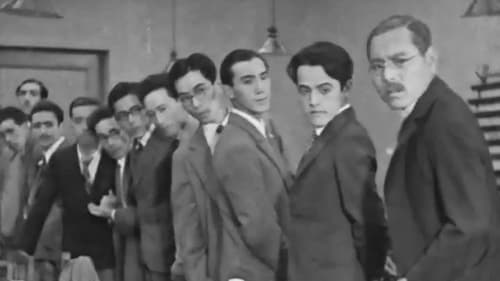
Rou-Shain Yamada
Mr. Omura, a teacher, leads a group of male students in an outdoor drill. One slight, comic young man, Shinji Okajima, has no shirt under his jacket; he scratches at fleas and makes faces behind Omura's back. Jump ahead several years, Shinji is married with three children. He sells insurance, and on the company's annual bonus day, he protests when an older worker is fired. Shinji loses his own job as a result, and he and his wife must find ways to cope. Lassitude, pride, the demands and needs of young children, and relationships from bygone school days all play a part in the outcome of their struggle.

A playwright moves to a rural neighborhood to avoid the distractions of the city, but he discovers there are plenty of ways to get sidetracked in his new home, too.

Michiko gets pregnant after a rape. She marries a boring business partner of her father to avoid the shame. Later she meets the rapist again who is now a union leader in opposition of her husband.

Karei (a butler)
La Señora y la Barba comienza como una comedia bulliciosa, vulgar, que poco a poco se adentra en la melancolía y el patetismo. "La barba" del título pertenece a Okajima, un maestro de espada kendo que no puede encontrar un trabajo en la época de la depresión en Japón. La barba se la afeita cuando “la bella" - una mecanógrafo que ha salvado de un atraco- le convence de que es un obstáculo para encontrar un trabajo. Incluso bien afeitado, él no puede huir de los problemas: la nueva mujer de su vida resulta ser un ladrón de joyas. La Señora y la Barba es fascinante por su "audacia sexual" y por su crítica total a la occidentalización y el nacionalismo japonés estrecho de miras-

Section chief
A salaryman finds some money in the street and gets a reward for returning it to its rightful owner. However his colleagues immediately start borrowing money and selling him things he doesn't need, much to his wife's annoyance. Considered to be a lost film.

The adventures of a modern day descendant of a famed Edo era thief are the basis for this short supernatural comedy romp.

Yoshida

A farmer’s boy, obsessed with his balsa-and-paper flying models and with dreams of real aircraft, develops a friendship with the daughter of the local squire, who introduces the lad to her pilot brother and his flying officer friends; through hard work, and despite the handicap of a lowly class status, he eventually succeeds in qualifying as a pilot and joining the air force.
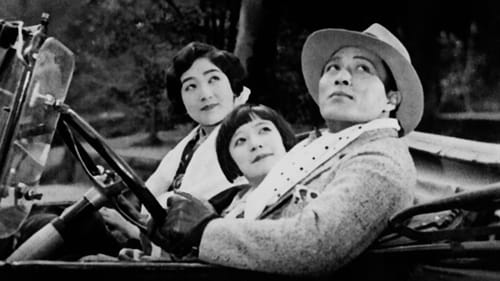
Ono, the company's president
Kenji is a small-time thief who likes drinking and fighting. When he falls in love with sweet and simple Yazue, and she finds out what kind of guy he really is, she leaves him "until he becomes an honest person." Kenji soon finds it's not easy to get rid of one's past.
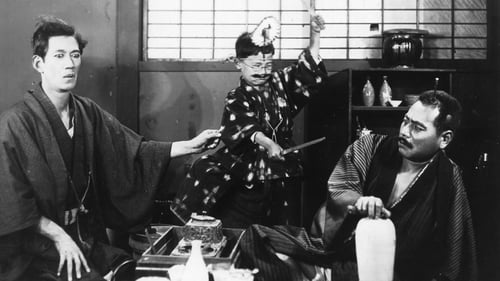
Boss Gontora
Cortometraje de Yasujirō Ozu.

Friend
When Sakamoto is made redundant he cannot bring himself to tell his wife. Instead he investigates other employment opportunities. Considered to be a lost film.

Secretary
Tetsuo Nomoto, un joven licenciado, intenta en vano encontrar un trabajo digno de sus méritos. Poco después se casa con su novia, Machiko, a quien oculta que no tiene empleo. Las penurias económicas no tardan en hacer mella, lo que fuerza a Machiko a buscar trabajo en un bar. "Me gradué, pero..." duraba originalmente 77 minutos, de los cuales (a fecha de 2013) se conservan exclusivamente entre 11-15. Éstos fueron incluidos en el DVD "The Student Comedies (The Ozu Collection)". (FILMAFFINITY)

Kunizo Ôhara
A young couple flee their disapproving parents, get lost of Mt. Akagi and find a cache of gold protected by the ghost of a gangster.

A melodrama about an orphan and her mother who are separated and lose contact, but are later reunited.
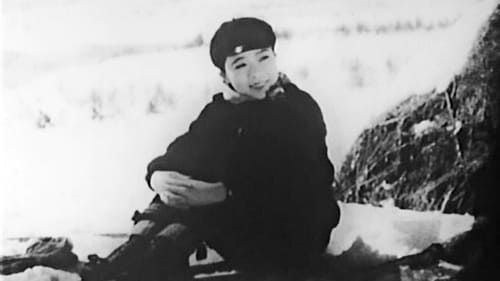
professor
Students Watanabe and Yamamoto unknowingly compete for the same girl.

Solo se conserva un fragmento 20 minutos de esta película de Shimizu.
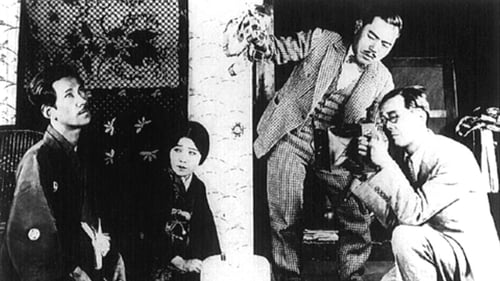
A hen-pecked man works as his artist wife's model and a house-husband. When her patron flirts with her and humiliates him, he decides to get revenge by trying his own hand as a painter. Considered to be a lost film.

Principal
Comedy about a young man juggling several girlfriends. Considered to be a lost film.

Uncle
A married man falls for a dancer and his wife's uncle hires a private detective to spy on him. Considered to be a lost film.
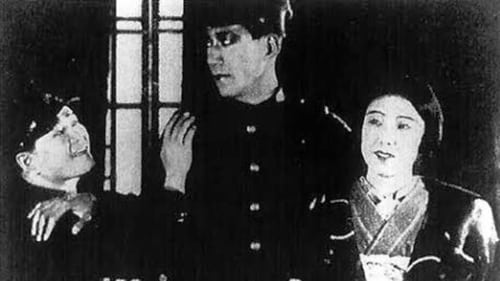
Okada's father
Lost silent film























































































